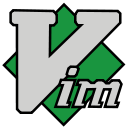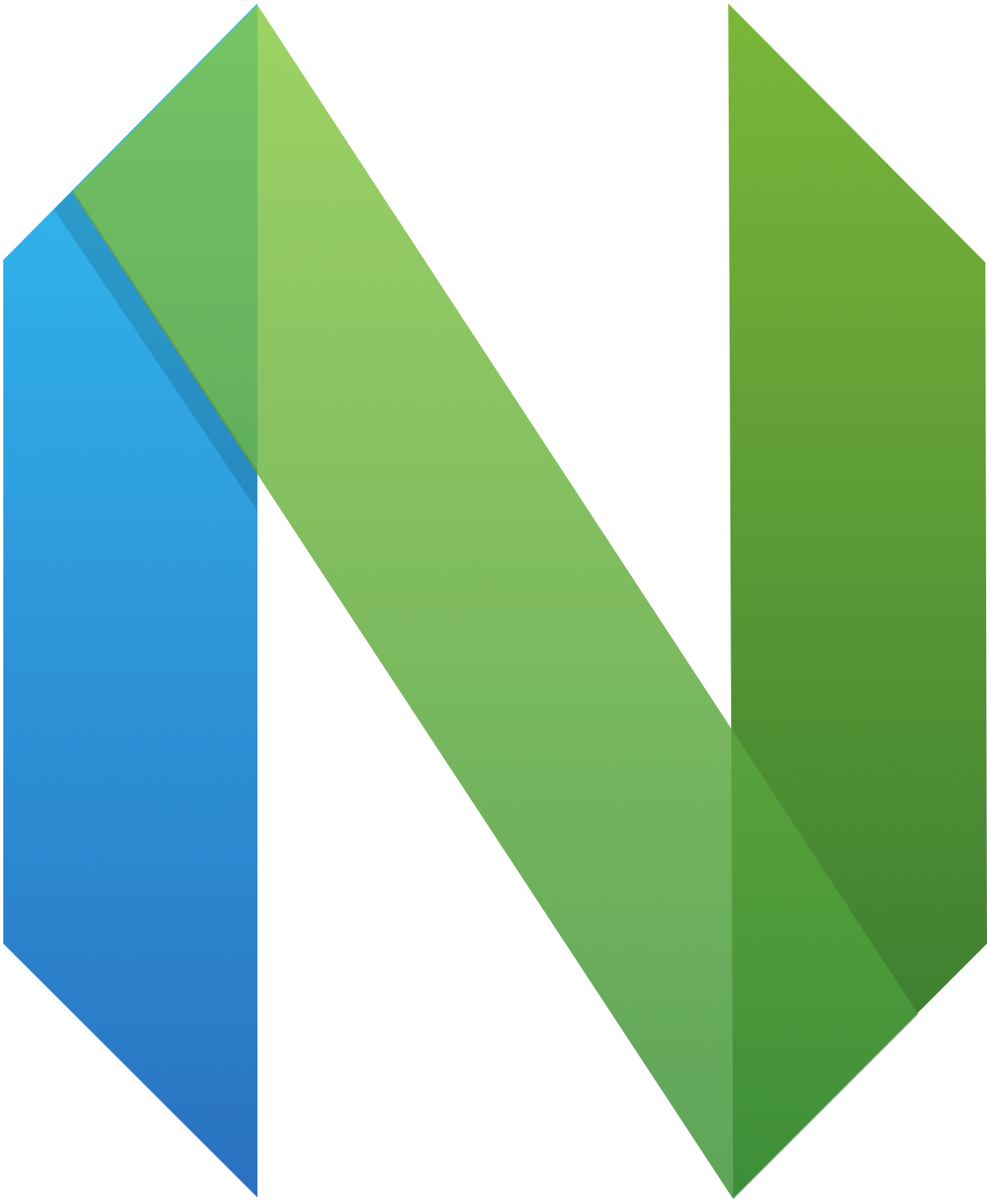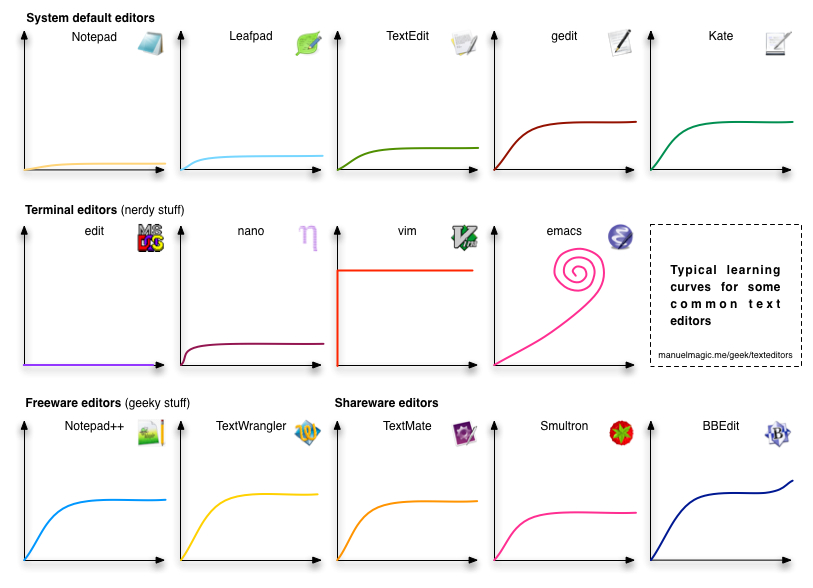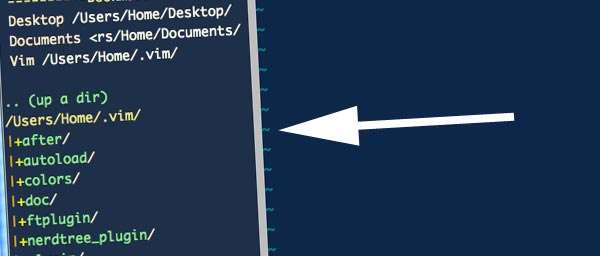Learning Vim: Beginner advice and lessons learned
by Vasyl Nakvasiuk, 2016
@vaxxxa


Vi
(Bill Joy, 1976)
Vim
(Bram Moolenaar 1991)
Neovim
(Thiago de Arruda, 2014)
Why Vim?
Highly customizable
Runs everywhere
Try something new
Investing in yourself
Feel quite at home
Have fun
Vim modes
Vim modes
Normal mode
Insert mode
Visual mode
Yummy features
Operator + Text object
The DOT command
Operators
- d – delete (also cut)
- c – change (delete, then place in insert mode)
- y – yank (copy)
- v – visually select
- gu – make lowercase
- gU – make uppercase
- g~ – swap case
Text objects
Text object = prefix + object
Text objects
Text object prefix
- a – select "a"n object
- i – select an "inner" object
Text objects
Object
- w – word
- W – WORD
- s – sentence
- p – paragraph
- ] [ – [] block
- ) ( b – () block
- > < – <> block
- } { B – {} block
- t – tag block
- ' " ` – quoted string
Magic commands
NUMBER + OPERATOR + TEXT OBJECT/MOTION

Magic commands
C I W
D A }
V I T
C I )
Y I "
C A T
D A P
The DOT command
Repeat single motion (last change)
The DOT command
Now you can repeat everything like a boss

Learning curves

Before you start, you should know
Before you start, you should know
Different from everything you've used before
Don't start at work
Don't use arrow keys
Break up with your mouse
Use always a better way
Don't copy someone else's configuration
Don't use 100500 plugins
Find your vim mentor/guru/jedi
Vimtutor
$ vimtutor
:Tutor
Must have plugins
fzf.vim

Must have plugins
NerdTree

Learning Vim is
A process, not an action
Links
Cheatsheets:
- Vi / Vim Graphical Cheat Sheet (http://goo.gl/6XhdEy)
- Vim Cheat Sheet for Programmers (http://goo.gl/KDSniy)
- Beautiful VIM Cheat Sheet (http://goo.gl/oekJAK)
Other:
- Free screencasts about the Vim (http://vimcasts.org/)
- Awesome Vim plugins (http://vimawesome.com/)
- VIM Adventures (http://vim-adventures.com/)
The end
Thank you for attention!
- Vasyl Nakvasiuk
- Email: vaxxxa@gmail.com
- Twitter: @vaxXxa
- Github: vaxXxa
This presentation:
Source: https://github.com/vaxXxa/talks